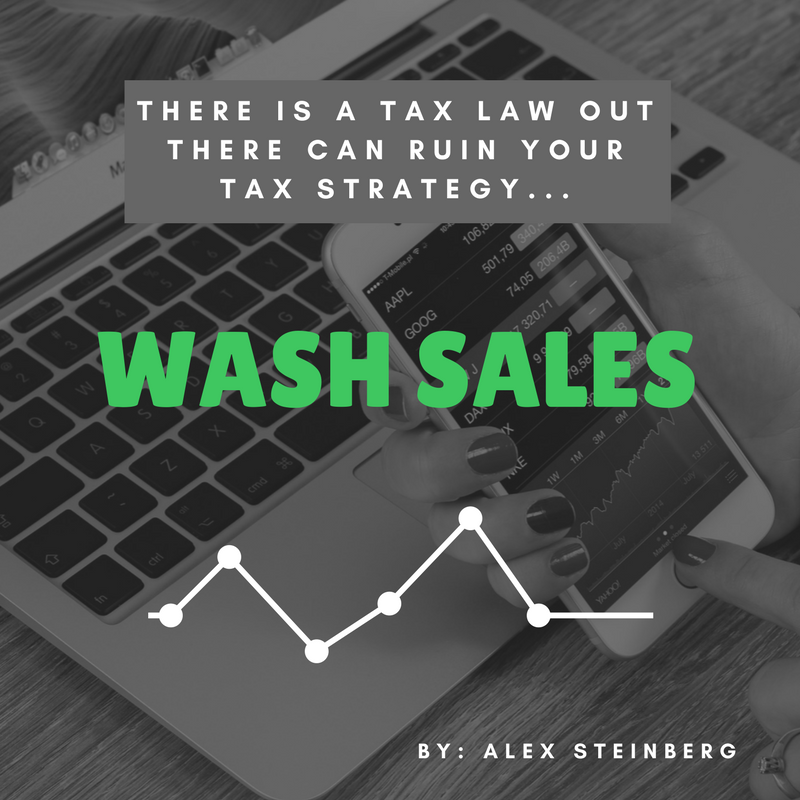What a letdown those NFL Conference Championship games were this past weekend. On paper both games looked fantastic. However, the Super Bowl is shaping up to be the one of the best ones in memory. When you start breaking down the matchup you could easily make arguments for either team winning this game. At the end of the day my pick is the Patriots – never bet against Brady and Belichick in a big game.
Now, before we get to the Super Bowl we have an important tax strategy issue to discuss today. I’m sure there are many out there who were advised to sell “loser” stocks before year-end to harvest capital losses to use against their taxes. Seems like an easy decision, right? Sell your stock, write off the losses. There is a tax law out there can ruin your strategy – the Wash Sale.
The Wash Sale is governed under Section 1091 of the Internal Revenue Code. I’m going to spare you all of the boring tax code and break it down simply for you.
When Does a Wash Sale Occur?
There is a three-step test to determine if you have a wash sale. First, you must have sold a security at loss. Second, if you bought the same security 30 days before the sale you have a Wash Sale. If you passed this test, then the last test is if you bought the same security 30 days after the sale. If you did, then you have a Wash Sale.
What Happens If I Have a Wash Sale?
First things first, you cannot take the loss against your taxes. However, all is not lost! The disallowed loss is added to your cost basis and can be used against a future sale (as long as it isn’t a Wash Sale again).
What Types of Investments/Securities Apply to This Test?
This answer is a little tricky, let me explain. In general the test applies to stocks, bonds, options, and short sales and excludes future contracts and foreign currencies. The tax code goes on to state that the Wash Sale rules apply if you buy or acquire substantially identical securities or acquire a contract or option to buy substantially identical securities within the time frame stated above.
Naturally the question is what does substantially identical mean? This isn’t a simple answer. It’s pretty clear cut that if you buy the same exact security in the time frame then that is substantially identical. If the two companies are merging and you sell Company A to buy Company B, then that transaction is subject to the Wash Sale rules. Another scenario is if you sold Company C to purchase its convertible bonds. This would be considered part of the Wash Sales. There are many more scenarios out there, but these are the basics.
Who Does This Apply To?
The Wash Sale rule applies to mainly investors in securities. The rule also applies to traders of securities, except if the mark-to-market election was made under IRC Section 475f (this is a complicated subject so if you have questions on this please send them to me).
The Wash Sale rules also apply to related parties, such as family members as well as pass-through and corporate entities owned by the seller of the security. Here’s two examples (assume the transactions take place in the time frames mentioned early):
If you sell a stock and your brother purchases the same stock, then this would be a Wash Sale. On the other spectrum, if you sell a stock and your investment partnership purchases the same stock, again, you have a Wash Sale.
Lastly, the Wash Sale rules apply to your retirement accounts as well. The IRA is considered a related person, just like a family member or a company owned by the seller.
Now What?
Since the second 30 day window is still open (as of the day this article was written), there is still time to act for your 2016 taxes. I strongly recommend speaking to your tax advisor on how to avoid this tax trap and maximize your taxes!






